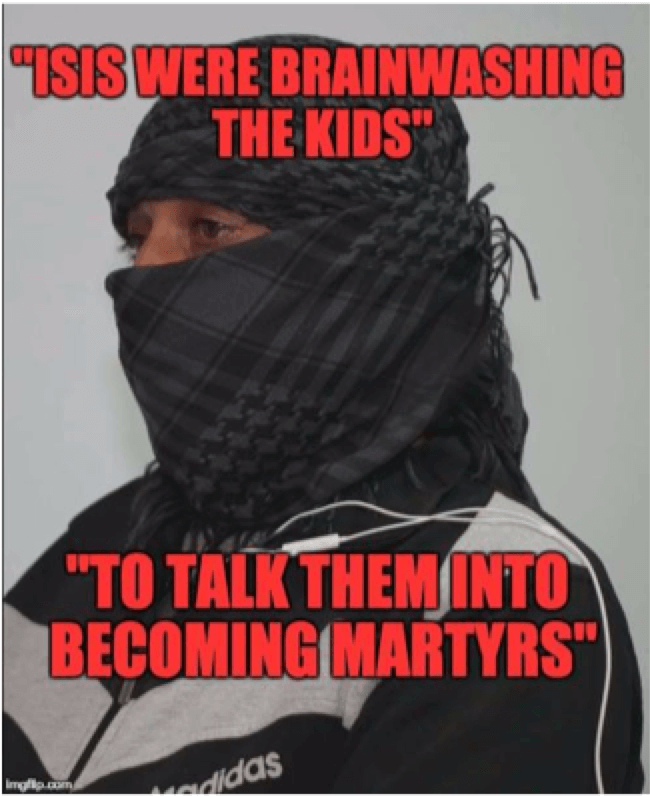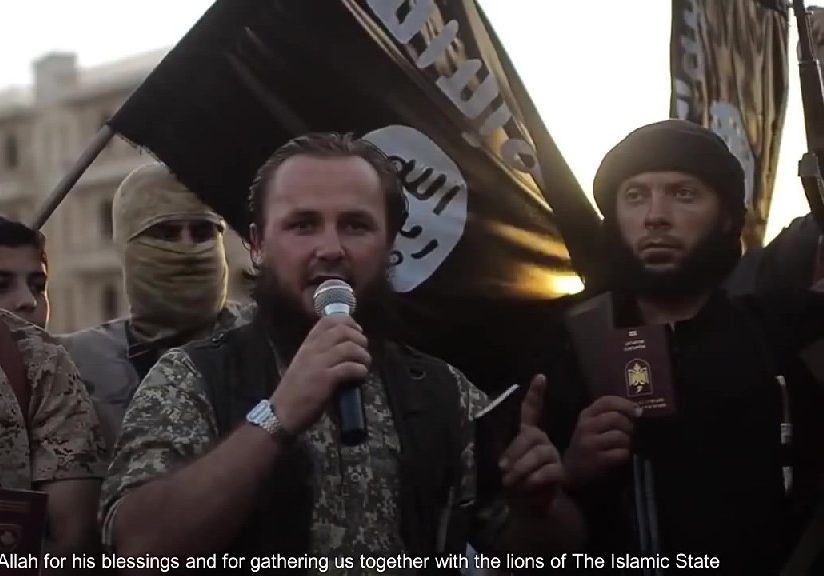Blog
Who Supports Dissident Irish Republicanism? A Snapshot of Sympathisers on Facebook in 2015
April 25, 2019By Ross Frenett Introduction The murder of Lyra McKee on Good Friday has shone a spotlight on an often under-reported and under-analysed form of violent extremism, violent dissident republicanism (VDR). McKee’s murder was not an aberration; in the past number of years, VDR groups have killed two soldiers, two Police Service of Northern Ireland (PSNI) ...
Blog
Amplifying the Voice of Terror: A New Ethics for Terrorism Reporting by Media?
March 20, 2019By Dr Matteo Vergani The Christchurch terror attack conducted by Brenton Tarrant highlights the urgent need to break the destructive synergy between media reporting and terrorist messaging. Tarrant planned a careful media strategy. He exploited social media, like many al-Qaeda and ISIS-inspired terrorists before him, live-streaming his attack and uploading a manifesto in the expectation that ...
Blog
Philippines: The Black Flag Flies on Facebook
February 27, 2019By Nathan Shea The first news that militants had taken to the streets of the Islamic City of Marawi on May 23, 2017, came from Facebook. Pictures of masked men carrying assault rifles and waving the black flag of the Islamic State were swirling across social media well before Philippine and international news channels picked ...
Blog
How Social Media Users in Kyrgyzstan are Turned into “Extremists”
January 9, 2019By Elnura Alkanova Since the 2000s, social networks have been widely used both as platform for like-minded users and an instrument for spreading information and ideas. But the rapid dissemination of facts and opinions also results in an uncontrollable stream of information. As a result, we are witnessing an increasing number of posts with negative content ...
Blog
The Australian New-Right Movement: Online and ‘Others’
October 3, 2018By Jade Hutchinson The ‘Right’ Kind of Dogma Radical-right groups harness online platforms to disseminate dogmas against the ‘Other’. In response to an influx of foreign migrants, the concatenation of Islamist terrorism and record levels of distrust in government institutions, the radical-right is invigorated by an aggressive anti-‘Other’ sentiment. As the source of social anxiety and ...
Blog
Fighting ISIS on Facebook – Breaking the ISIS Brand Counter-Narratives Project
June 27, 2018By Anne Speckhard, Ardian Shajkovci & Lorand Bodo This blog post synopsises a study that attempted to intervene with over fifty English-speaking Facebook accounts endorsing, promoting, and following ISIS. Methodology and Research Design For this study, several anonymized Facebook accounts were used to identify English-speaking radicalized Facebook profiles as our target for an online counter-narrative intervention. ...
Blog
Facebook’s Data Lockdown is a Disaster for Academic Researchers
May 9, 2018By Marco Bastos and Shawn T. Walker Facebook recently announced dramatic data access restrictions on its app and website. The company framed the lockdown as an attempt to protect user information, in response to the public outcry following the Cambridge Analytica scandal. But the decision is in line with growing restrictions imposed on researchers studying ...
Blog
Academics Call on Facebook to Make Data More Widely Available for Research
May 2, 2018By Shelley Hepworth A group of 20 academics based at universities around the world have written an open letter to Facebook, calling on the company to rethink how it engages with the research community. In the wake of recent controversies over privacy, Facebook recently announced restrictions to third-party access to public user data via its Application ...
Blog
Facebook Data: Why Ethical Reviews Matter in Academic Research
April 25, 2018We’re at Swansea University this week for a joint workshop with The Cyberterrorism Project on ‘The Ethics of Internet-mediated Terrorism Research,’ so we thought we’d post a Blog on ethics-related issues. [Ed.] By Natasha Whiteman When the Facebook data of 50m users was collected by Cambridge academic Aleksandr Kogan, his actions reportedly came to the ...
Blog
Breaking the ISIS Brand Counter-Narratives – Part I: Intervention with Albanian Speaking Facebook Accounts
February 28, 2018This is part one of a two-part series; the second part is HERE. By Anne Speckhard, Ardian Shajkovci, Lorand Bodo & Haris Fazliu It is estimated that of the 38,000 foreign fighters who have joined Sunni militant groups, such as ISIS and al-Nusra, in Iraq and Syria, upwards of 875 have originated from the Balkans, ...









